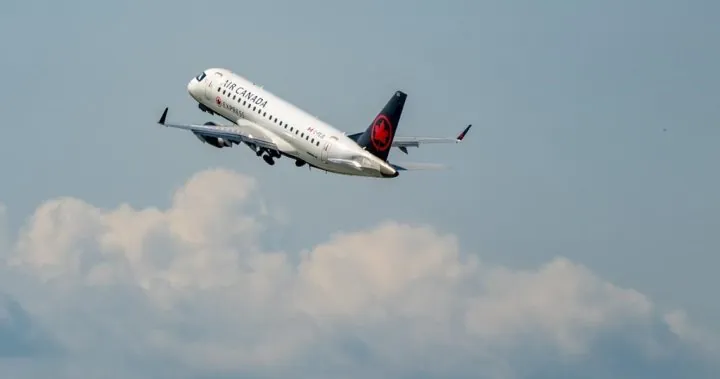
Air Canada Pilots Secure Landmark Collective Agreement: What You Need to Know
2024-10-10
Author: Emily
In a significant development for the airline industry, Air Canada pilots have successfully ratified a new collective agreement with the airline, averting a potential strike that could have severely disrupted travel plans for thousands of passengers. The announcement was made by the Air Line Pilots Association (ALPA) on Thursday, revealing that 67% of voting members supported the agreement.
This new contract is not just another deal; it's being touted as the largest labor agreement in Air Canada’s history, reflecting the invaluable contributions pilots make toward the success of the airline. According to Charlene Hudy, first officer and chair of the Air Canada ALPA master executive council, this contract seeks to restore what pilots have lost over the past 20 years while laying a robust foundation for future improvements.
Key Highlights
Key highlights of the agreement include an impressive cumulative pay increase of approximately 41.7% over the next four years. This pay structure, effective retroactively from September 30, 2023, features an average initial hike of 26%, followed by annual increments of 4% through 2026. The union estimates that these changes will add around $1.9 billion in value for Air Canada pilots over the term of the agreement.
While the specific terms of the contract haven’t been fully disclosed to the public, the implications are clear. Air Canada aims to keep its pilots as the highest compensated in Canada while addressing their demands for improved work-life balance. CEO Michael Rousseau expressed satisfaction with the ratification, stating that the agreement is beneficial for both the airline and its pilots.
The agreement comes in the wake of tense negotiations that had been ongoing for over a year. Just last month, the threat of a strike loomed large as talks stalled, prompting Air Canada to take precautionary measures. In preparation for a possible shutdown, the airline had limited certain cargo shipments and adjusted some flight schedules. Fortunately, no flights were canceled as the two parties reached an agreement shortly after a midnight deadline.
Interestingly, the federal government chose not to step in during this labor dispute, despite previous interventions in other sectors. Labour Minister Steve MacKinnon had encouraged both sides to find common ground, emphasizing the economic ramifications of a potential work stoppage.
Had a strike occurred, it would have significantly impacted Air Canada's operation, which averages 670 daily flights and serves upwards of 110,000 passengers daily.
As Air Canada pilots look ahead to a more promising future through this agreement, the airline industry as a whole will be watching closely. This deal may set a precedent for other carriers navigating similar negotiations.
Stay tuned as we follow the evolving landscape of labor relations in aviation, which could reshape the future of airline operations and passenger experiences alike!









 Brasil (PT)
Brasil (PT)
 Canada (EN)
Canada (EN)
 Chile (ES)
Chile (ES)
 España (ES)
España (ES)
 France (FR)
France (FR)
 Hong Kong (EN)
Hong Kong (EN)
 Italia (IT)
Italia (IT)
 日本 (JA)
日本 (JA)
 Magyarország (HU)
Magyarország (HU)
 Norge (NO)
Norge (NO)
 Polska (PL)
Polska (PL)
 Schweiz (DE)
Schweiz (DE)
 Singapore (EN)
Singapore (EN)
 Sverige (SV)
Sverige (SV)
 Suomi (FI)
Suomi (FI)
 Türkiye (TR)
Türkiye (TR)